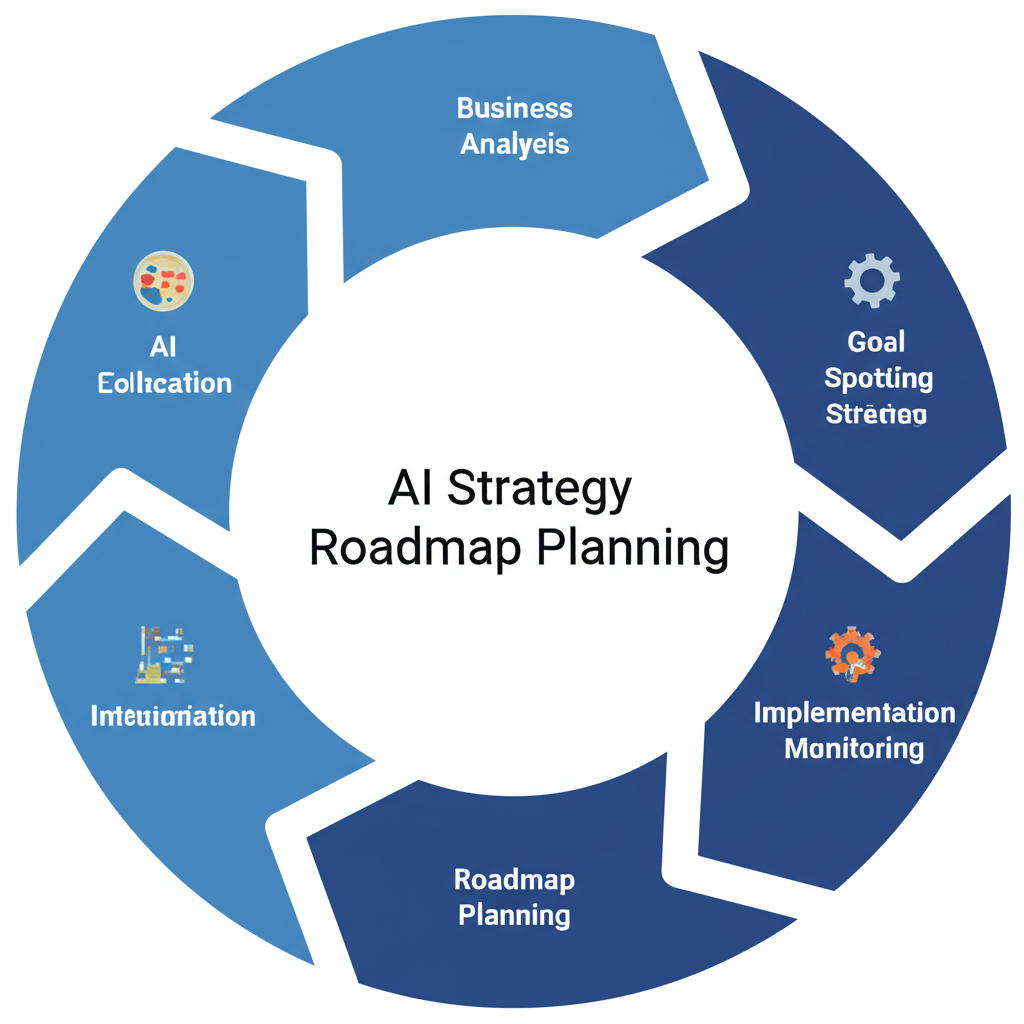Frequently asked questions
Common questions about our AI strategy consulting services
Why does my business need an AI strategy?
An AI strategy provides a structured approach to implementing artificial intelligence in your organization. It helps align AI initiatives with business goals, prioritize use cases, allocate resources effectively, manage risks, and ensure ethical implementation. Without a strategy, AI projects often lack direction, face resistance, and fail to deliver expected value.
How long does it take to develop an AI strategy?
Developing a comprehensive AI strategy typically takes 4-8 weeks, depending on your organization's size, complexity, and specific requirements. The process includes assessment, workshops, research, strategy formulation, and roadmap development. We work collaboratively with your team to ensure the strategy is thorough yet delivered in a timely manner.
How do you ensure our AI strategy aligns with our business objectives?
We begin by thoroughly understanding your business objectives, challenges, and vision. Our strategy development process involves key stakeholders from across your organization to ensure alignment. We identify AI use cases that directly support your strategic goals and prioritize them based on business impact, feasibility, and resource requirements. The resulting strategy is specifically tailored to advance your unique business objectives.
What if we don't have the right data for AI implementation?
Data readiness is a common challenge. Our AI strategy includes a data assessment and recommendations for data collection, preparation, and governance. We can help you identify data gaps, develop data acquisition strategies, and implement data quality improvements. In some cases, we may recommend starting with smaller AI projects that can work with your existing data while you build more robust data capabilities.
How do we measure the success of our AI strategy?
We work with you to define clear success metrics aligned with your business objectives. These typically include both technical metrics (model accuracy, processing time) and business KPIs (revenue growth, cost reduction, customer satisfaction). Our strategy includes a measurement framework and recommendations for ongoing monitoring and evaluation to track progress and demonstrate ROI.
